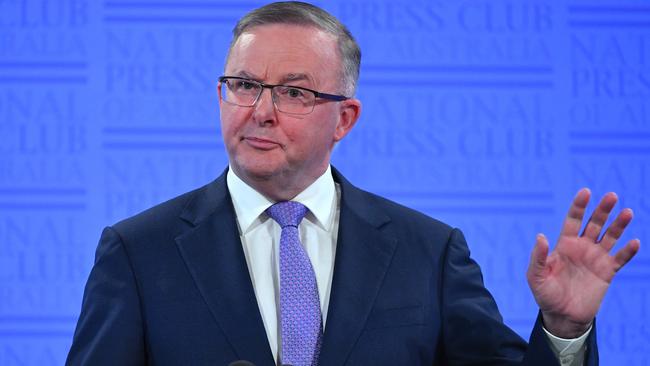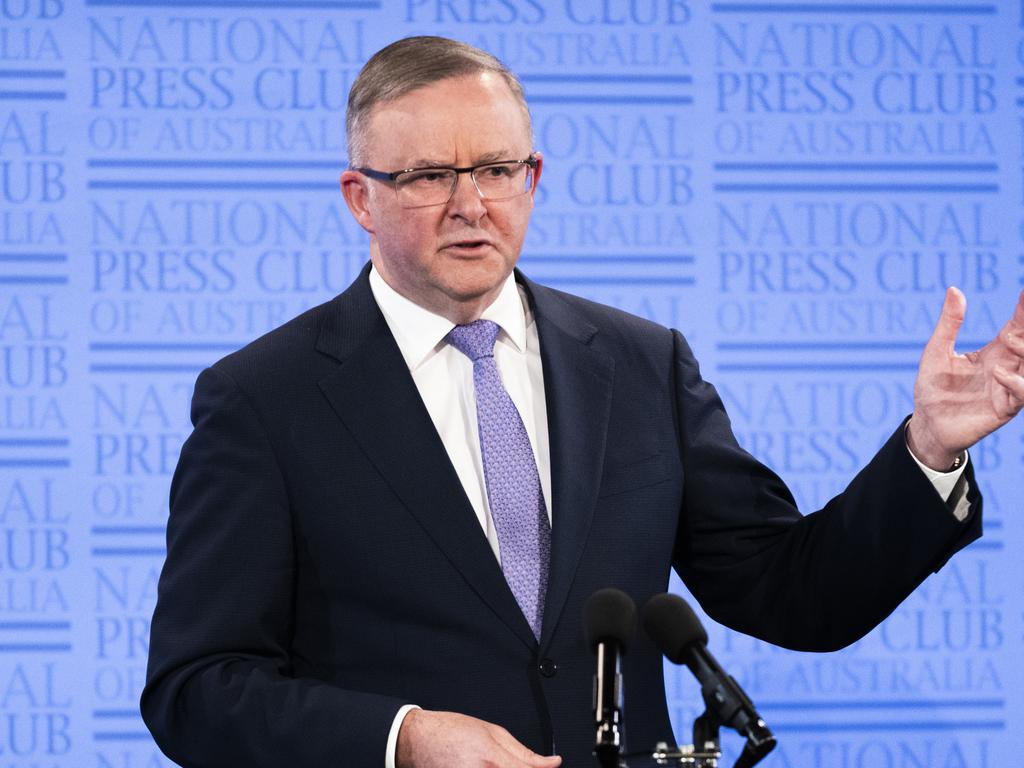
The Labor leader’s speech and letter to the Prime Minister shows the coronavirus, not the bushfires, is framing climate change policy for Labor — as distinct from the Greens. Albanese is taking Morrison’s success with co-operative politics over COVID-19 and inviting him to achieve “bipartisan agreement” on climate change.
It is a neat but deceptive ploy. There will be no negotiation and no grand bargain. Albanese’s calculation was that if Morrison agreed, that would boost Labor’s “olive branch” credentials; but if Morrison declined, then Labor would have the moral high ground for seeking to repair the great energy policy divide.
As a realist, Albanese knew Morrison was never likely to sit down and negotiate a new “bipartisan energy policy framework” as his letter requested. That would reopen too many internal Coalition battle scars from the Abbott-Turnbull era. More important, Morrison sees no pressing need to negotiate a new policy because he rejects Labor’s argument that it is essential.
Albanese’s letter, however, reveals the shifting dynamic of climate change politics. Ahead of the Eden-Monaro by-election, Albanese wants to pose as the architect of bipartisanship having seen Morrison exploit the politics of concord for so long.
Second, he wants to reposition Labor in policy terms — by turning climate change during the coming deep recession into a renewables-driven debate about jobs and investment. He knows offering a bipartisan stance is music to the ears of the business and investment community.
Finally, Albanese seeks to prove he is not Bill Shorten — he poses as a centralist on climate, not a polariser. He presents as a leader driven by science, seeking more ambitious emission reduction targets than Morrison but more modest than Shorten, thereby seeking a better internal balance on climate within the Labor Party.
In his response Morrison will welcome Albanese’s conciliation, his endorsement of the government’s technology roadmap and his support for carbon capture and storage technologies. “But Albanese isn’t actually offering us anything,” was the response of one government source.
Albanese’s speech and letter to Morrison mark a Labor repositioning, not any fundamental policy change. They reflect Labor’s game plan before the 2019 election, when it championed the abandoned Turnbull policy combined with more ambitious emission reduction targets and rejected the government’s Emissions Reduction Fund.
Albanese wants Morrison to endorse the sort of policy vehicle represented by the National Energy Guarantee that Malcolm Turnbull was forced to dump. The exact mechanism, though, is not important. In his letter to the PM, Albanese quoted the Reserve Bank to buttress his argument that investment in renewables is collapsing — hence the need for a new framework.
The government disagrees. But Albanese and his climate change spokesman, Mark Butler, believe this is the government’s vulnerability. “We’ve had, since 2013, no energy policy in this country,” Albanese said. He argues this is bad for jobs and bad for emission reductions.
The critical point Labor is making to business cannot be missed: Australia faces many complex problems but achieving investment certainty with a new bipartisan energy framework can be delivered quickly by a Coalition-Labor legislative agreement.
Yet Albanese’s search for bipartisanship does not extend to emission reduction targets. Indeed, his letter to Morrison was careful to say the two parties had “different views” on targets and agreement on the targets “is not necessary to deliver an enduring national energy policy”. For the politics, Labor needs product discrimination on targets.
It cannot accept the Coalition’s 26-28 per cent targets by 2030 since that would be seen as a betrayal by its own supporters. But Albanese will scale back the ambition in Shorten’s 2030 targets from the last election. His “cover” is Labor’s commitment this year to zero net carbon emissions at 2050. Albanese said the medium-term targets would be based on the science, not the politics. By the next election those targets may be about 2035 not 2030.
Albanese will use the pandemic to facilitate Labor’s repositioning. He said yesterday of climate change policy: “Returning to our pre-pandemic approach is not an option.”
Decoded: he won’t run on Shorten’s excessively ambitious policy because it ruins Labor’s hopes in the resources states of Queensland and Western Australia. Indeed, when Albanese became leader he said the people were sick of “conflict fatigue”.
In his speech, Albanese, drawing upon advice from his deputy, Richard Marles, positions Labor as the science party — it will follow the science on climate just as it follows the science on combating the coronavirus.
Labor has no intention of returning to the carbon pricing schemes of the Rudd-Gillard era. That chapter is closed. As for Morrison, he will reply to Albanese’s letter in good time but, significantly, Morrison feels no need to join Albanese on bipartisanship.








Anthony Albanese has made an offer Scott Morrison could only refuse. But the offer reveals how COVID-19 is changing the politics of climate change — leaders must gesture to being conciliatory and bipartisan.